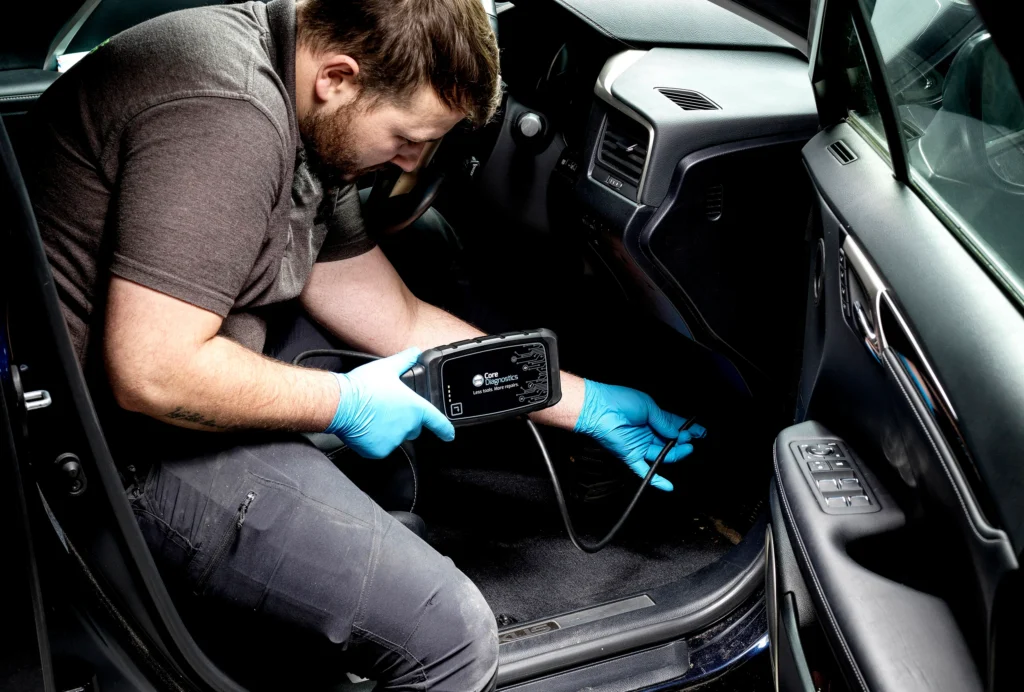[vc_row type=”in_container” full_screen_row_position=”middle” column_margin=”default” scene_position=”center” text_color=”dark” text_align=”left” overlay_strength=”0.3″ shape_divider_position=”bottom” bg_image_animation=”none”][vc_column column_padding=”no-extra-padding” column_padding_position=”all” background_color_opacity=”1″ background_hover_color_opacity=”1″ column_link_target=”_self” column_shadow=”none” column_border_radius=”none” width=”1/1″ tablet_width_inherit=”default” tablet_text_alignment=”default” phone_text_alignment=”default” overlay_strength=”0.3″ column_border_width=”none” column_border_style=”solid” bg_image_animation=”none”][vc_column_text]Apprenticeships are common within the motor industry and can be very beneficial for both apprentice and master. However as with all staffing decisions you do need to understand them? in order to ensure they are right for you and your business
What is an apprenticeship
An apprenticeship is a work-based training programme which leads to nationally recognised qualifications. It usually permits the apprentice to attend day release training whilst combining attending the workplace and working alongside experienced employees/workers. It can either be for a fixed term period or until a level of qualification is reached.
Forms of apprenticeship
In 2011 the Apprenticeships, Skills Children and Learning Act 2009 (ASCLA 2009) came into force in England and Wales which provides broadly two legal forms of apprenticeship;
- a Contract of Apprenticeship, and
- an Apprenticeship Agreement.
The apprentice will be an employee under both forms of apprenticeship, but the employer will have certain additional responsibilities for an apprentice employed under a Contract of Apprenticeship, particularly relating to terminating the apprenticeship.
Contract of Apprenticeship
Prior to the introduction of ASCLA 2009, the status of an apprenticeship was governed by case law, with the Court of Appeal finding a modern apprenticeship could still constitute a common law contract of apprenticeship as long as it satisfied traditional criteria relating to the duration of the contract and the employer’s obligations under it.
As a general rule, a Contract of Apprenticeship is the default legal position, and this will exist where you and an apprentice entered into a work-based training programme but no or no ASCLA approved written agreement is entered into.
Under a Contract of Apprenticeship, you are required to employ an apprentice until they have been trained to the agreed level. It is particularly difficult for employers to fairly terminate the apprenticeship prior to reaching the required qualification. Managing apprentices is made more difficult as the court guidance on when a Contract of Apprenticeship can be terminated lawfully is very restrictive, i.e., an employer has to show that it is virtually impossible for an apprentice to complete their apprenticeship. Unlike employees who can potentially be lawfully dismissed for matters such as capability, conduct, gross misconduct or redundancy, it is not straightforward to dismiss someone under a contract of apprenticeship for such reasons.
In the event of a wrongful termination an apprentice may have a claim for damages arising from breach of the apprenticeship contract (for how much longer the apprenticeship should have run until its normal end) plus potentially a claim for enhanced damages due to a loss of career prospects. Note an apprentice can also bring a claim in the County Court for up to 6 years from termination (as opposed to 3 months in an employment tribunal)
Approved English Apprenticeship Agreement
A traditional contract of apprenticeship is a contract under which the apprentice is bound to the employer in order to learn a trade, and the employer agrees to teach and instruct him. In an attempt to improve training for employment, the government first introduced a statutory scheme of apprenticeship agreements in 2011 under the Apprenticeships, Skills, Children and Learning Act 2009 (ASCLA 2009). A simplified scheme was introduced from 26 May 2015, but the old scheme continues to operate under transitional provisions.
This form of apprenticeship seeks to balance the needs of the apprentice with the needs of the employer. Within this framework an apprentice has normal Employment Law rights as the contract is deemed to be a contract of employment (and therefore the apprentice will have the status of employee) rather than a contract of apprenticeship. However, the agreement must satisfy certain conditions under ASCLA 2009 and be in a prescribed form.
There are a number of conditions required to qualify as an apprenticeship agreement which are:
- The agreement must provide for the apprentice to work for an employer for reward in a sector for which ‘an approved apprenticeship standard’ has been published;
- The agreement must provide for the apprentice to receiving training in order to assist them to achieve the approved apprenticeship standard in the work done under the agreement;
- The agreement must specify the amount of time to be spent on off-the-job training;
- The employer must agree a practical period (i.e., the period for which the apprentice is expected to work and receive training under the agreement) which takes into account:-
- the apprentice’s knowledge and skills,
- whether the work and training is to be undertaken by the apprentice on a full-time or part-time basis, and
- the relevant apprenticeship standard;
- The practical period must be not less than 12 months (unless the apprentice has been made redundant in the last year of another approved English apprenticeship working towards the same apprenticeship standard, in which case the new agreement can finish on the same day as the old one would have); and
- The agreement must specify the practical period.
If any agreement is not in the correct format the protections of the ASCLA will not apply. The position in Wales is slightly different in terms of the requirements under ASCLA. Clearly, we would also not advise employers to simply issue terms and conditions with the above bullet points and would strongly advise members to use a correct template of the ASCLA compliant agreement. Members of the RMIF have access to template agreements on the RMIF website, so we would strongly suggest that you use one of the approved formats in addition to any training agreements when taking on an apprentice.
Employers will still need to take care when dismissing apprentices under this type of apprenticeship where those apprentices have acquired sufficient continuous service for Employment Law rights. Once the apprentice has acquired two years’ employment then the employer will need to be able to demonstrate both a fair reason
We would certainly recommend that all apprentices are placed on an apprenticeship agreement.
Note the ASCLA does not apply to Scotland and Northern Ireland. The situation therefore terminating apprenticeships in Scotland and Northern Ireland remains riskier for the employer as they cannot avail themselves of the protection that the individual is treated as an employee (not an apprentice) if they are on the correct form of template agreement.
Training agreements
When employing an apprentice an employer can either arrange training programme themselves or enlist the aid of a third-party service who can assist with funding and arranging college courses. However, it is arranged most colleges will look to enter into a training agreement between the college the employer and the apprentice.
It should be noted that this is designed to govern the training requirements of the apprenticeship. It is not a replacement for an apprenticeship agreement between the employer an apprentice.
Again, members of the RMIF are strongly advised to utilise the template agreements on the RMIF website in addition to any training agreements.
Wages
Since 1st October 2010 apprentices have been entitled to a national minimum wage rate. Due to the apprentice’s reduced skill this rate is proportionately lower. The current apprentice rate as of April 2022 is £4.81 and applies where the apprentice is under 19 or over 19 and in the first year of their apprenticeship.
It should be noted that as the employer you will be liable for pay whilst the apprentice is at college.
Conclusion
Apprenticeships are a common and useful tool and allow employers to provide training and pass on their knowledge to the next generation. However, you will still need to take care when considering an apprenticeship. How an apprenticeship is set up will determine how easily it is to manage the apprentice, the training and if necessary, any disciplinary actions including dismissal.
We strongly advise that you do not take on any apprentices without a written apprenticeship agreement that complies with the ASCLA requirements. Neither the training agreement between you, the college and the apprentice nor any standard employment contracts are sufficient. Failing to do so will significantly affect your ability to manage the apprentice and prevent you from dismissing them until they are fully trained. The RMI provides standard templates of apprenticeship agreements for England, Northern Ireland, Scotland and Wales for free.
Don’t forget, this advice is general in nature and will need to be tailored to any one particular situation. As an RMI member you have access to the RMI Legal advice line, as well as a number of industry experts for your assistance.
Motor Industry Legal Services
Motor Industry Legal Services (MILS Solicitors) provides fully comprehensive legal advice and representation to UK motor retailers for one annual fee. It is the only law firm in the UK which specialises in motor law and motor trade law. MILS currently advises over 1,000 individual businesses within the sector as well as the Retail Motor Industry Federation (RMI) and its members.[/vc_column_text][/vc_column][/vc_row]




